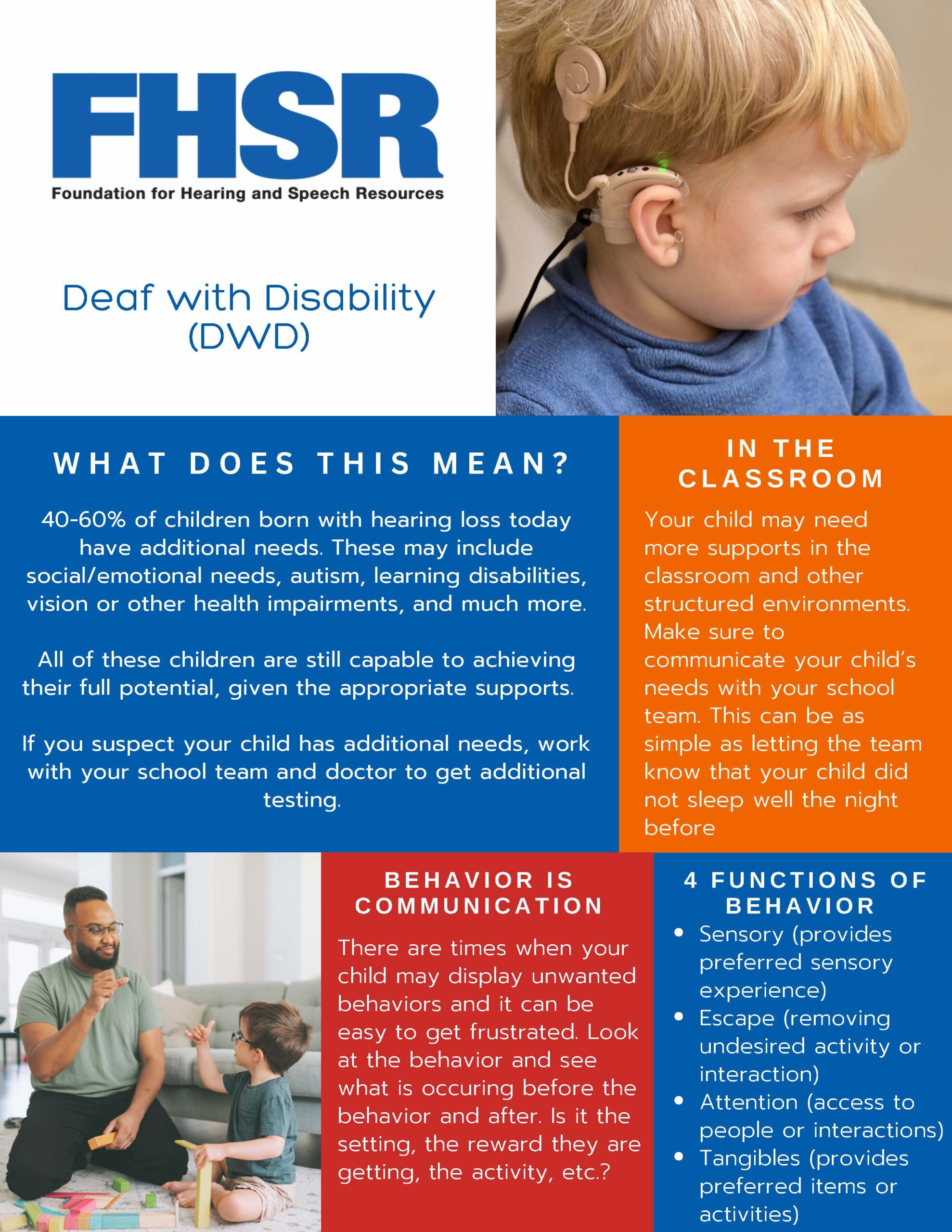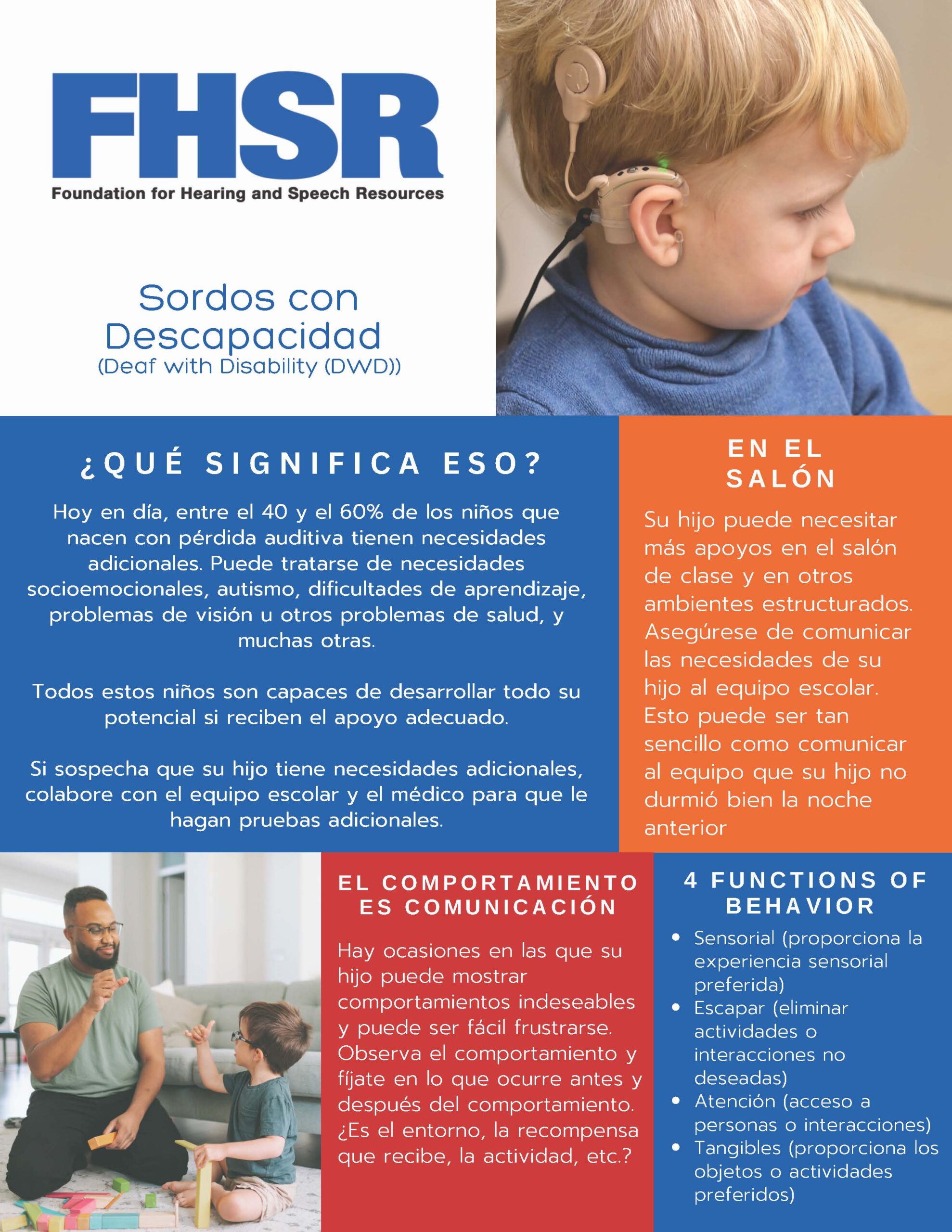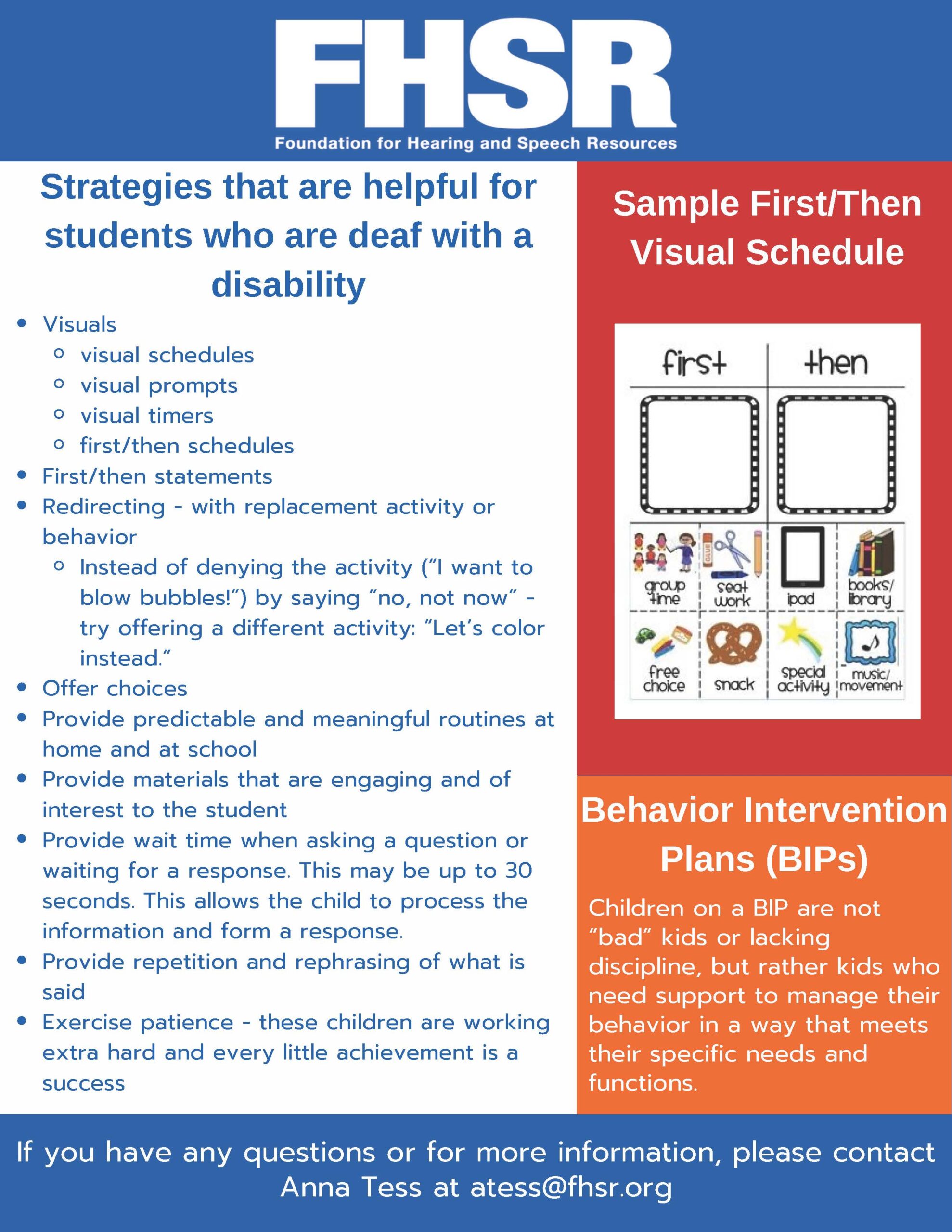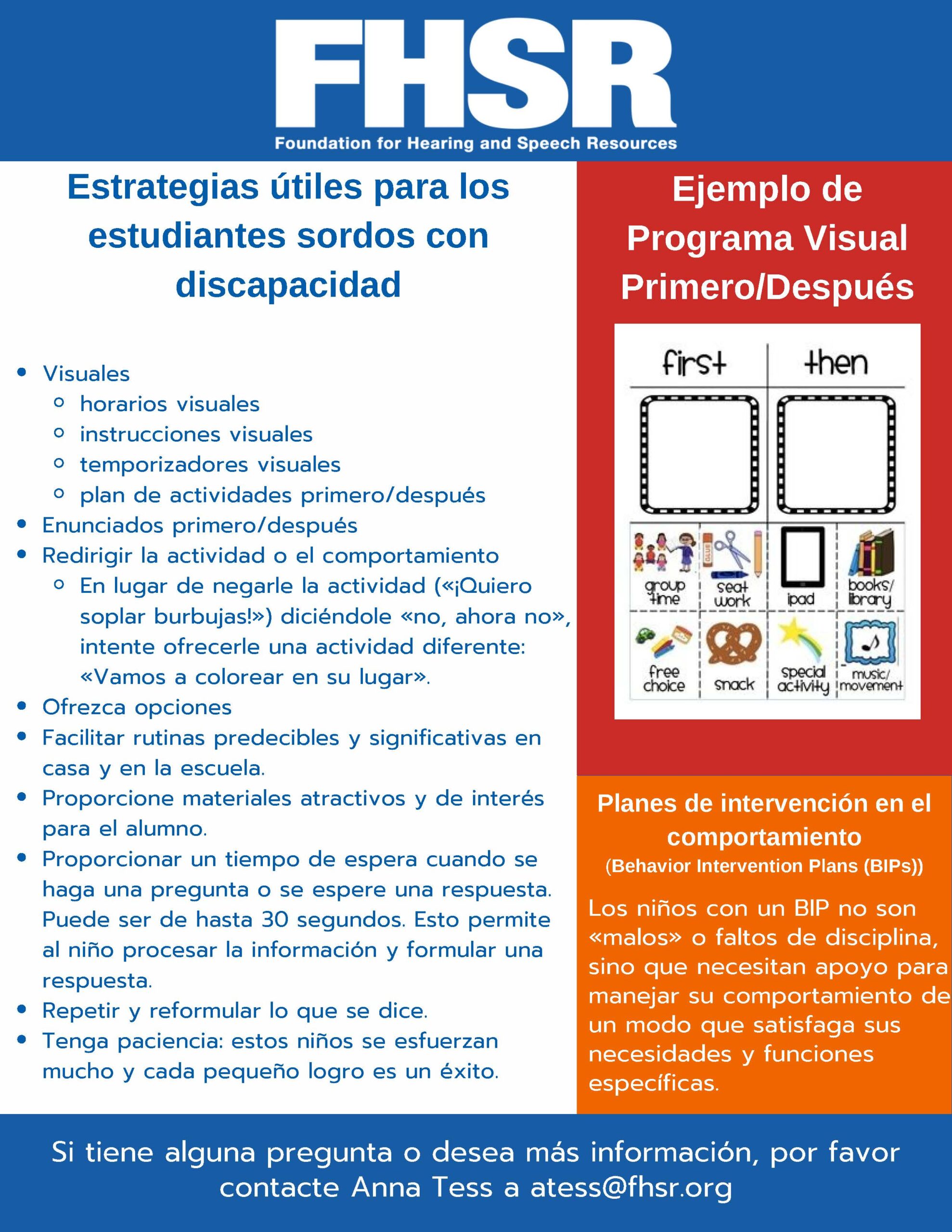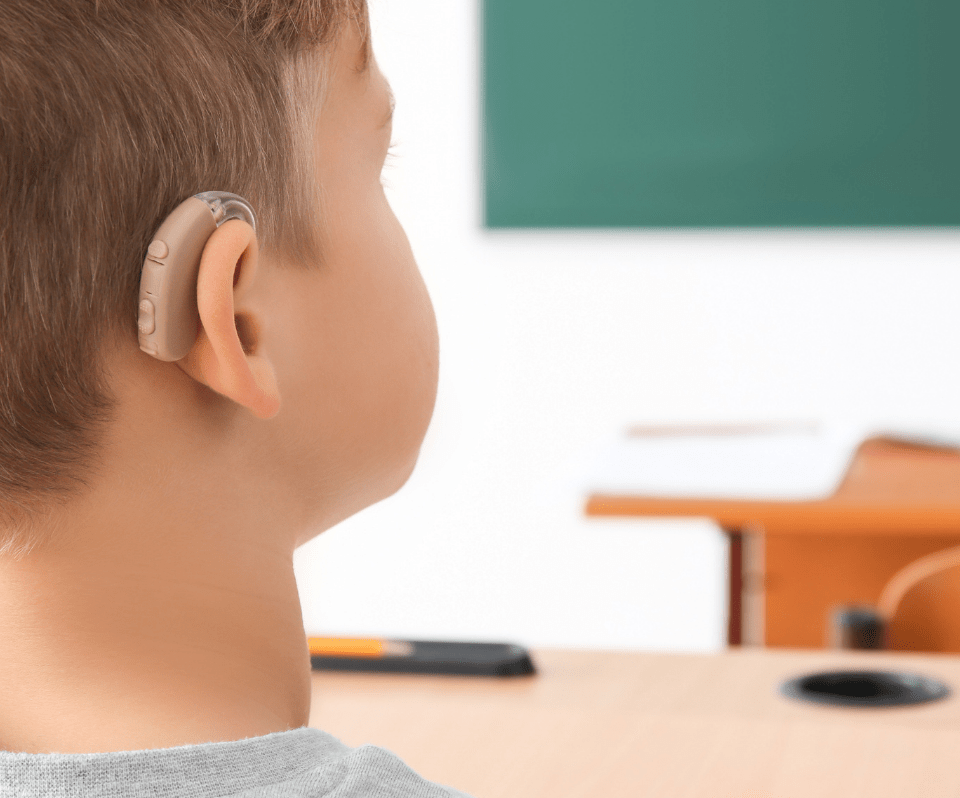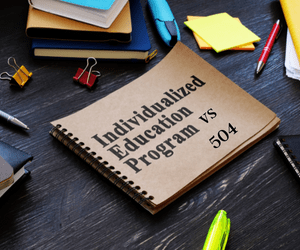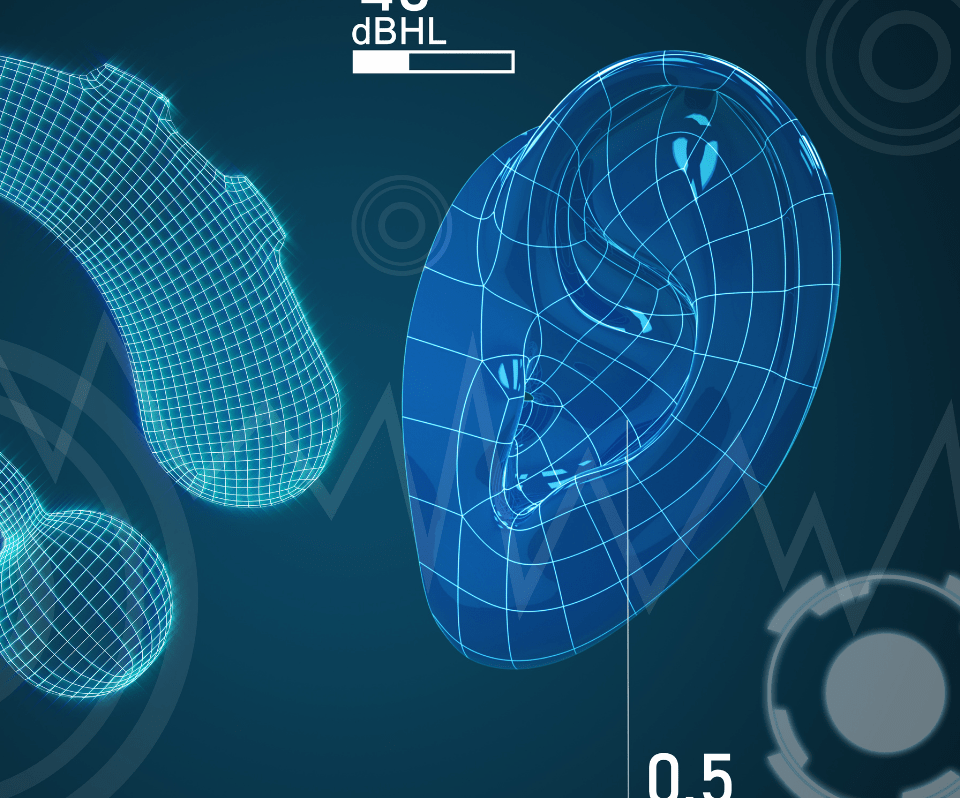PRE-K & KINDERGARTEN
When it comes to supporting deaf and hard of hearing children, research has shown that parents and primary caregivers are a child’s best advocate. One of the most crucial decisions parents will make for their DHH child is school choice along with knowing and using the support systems available. The Pre-K and Kindergarten stage tackles language development, school choice and Individualized Education Plan (IEP) vs 504 Plans. We have curated this information to help parents and caregivers be their child’s BEST advocate.
Over the past 60 years, we have seen parents and caregivers champion their children and help to drive their child’s successful life outcomes. We have included information from parents who are sharing their experience, along with education experts.
FHSR has responded to the need for parents and educators of deaf and hard of hearing children, by creating a new Education Coordinator Program. For more information on how the education coordinator can support you, and to sign up for support visit our Education Coordinator page.

New Parent Resource Downloads Now Available!
Developed by Dr. Anna Tess our Education Coordinator, our Education Resources deliver valuable insights and information. All downloads are available in English and Spanish.
- The Parent Resource Guide has information about parent rights, the IEP process, accommodation and modifications for children with hearing loss and 504 plans.
- The Early Literacy Guide provides strategies and information to help you read with your child.
- Additional resources including Milestones and Deaf with Disability.
When my son, who has cochlear implants, was transitioning out of early intervention into a school based Pre-K, there were a lot of decisions we needed to make along the way to find the right school fit for him. We found that advise from other families with DHH children and our service providers helped to make the transition more successful.

how to be your child's best advocate
The next phase of your child’s journey starts here with information to help you and your child successfully navigate this phase.
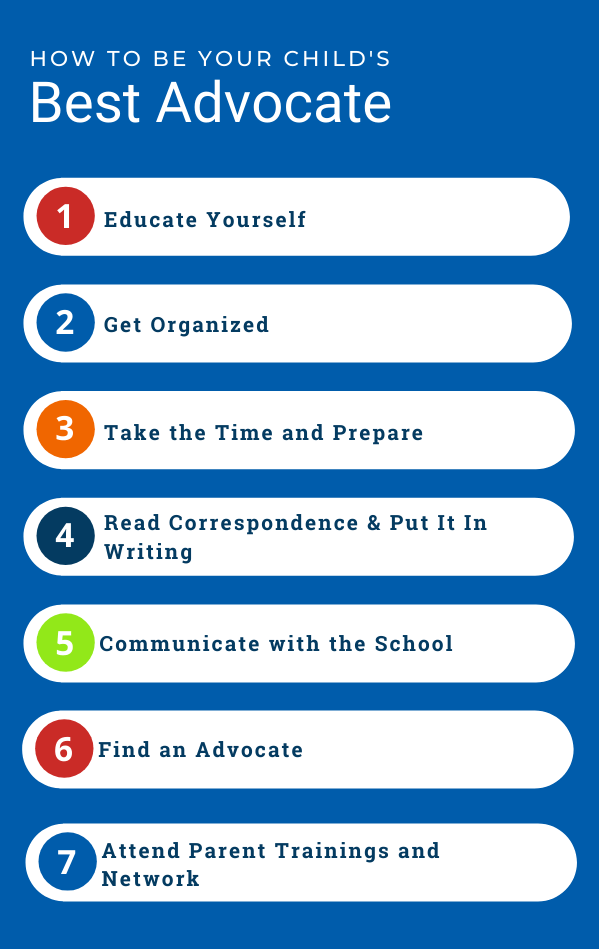
Educate Yourself
Learn all you can about your child and their hearing levels so you are comfortable communicating the information. You can get help or information from many people and places, including: your child’s Doctor, their Audiologist, their therapists, teachers, advocacy organizations and other parents.
Get Organized
You will get many documents from the doctor, your school district or others. These include letters, consent forms, school records, evaluations, individualized education programs (IEP), progress reports, meeting notes, and many other important papers. It is important to keep all these papers together. All documents should be scanned and saved in a file on your personal computer or in hard copy form. The important part is to have everything in one spot, and easily accessible. When you need to go to a meeting with the school about your child’s education needs, bring your binder or computer with you (i.e., recent audiograms, test results, etc.). Always offer or send a copy of materials your doctor or therapist may have provided to the school district, to keep as well. Finally, it is important to ask the school for your child’s records each year and add them to their home file.
Take the Time and Prepare
Planning your child’s education will take a lot of time, you will want to make sure you are able to have the time needed to understand and plan your child’s education. You have the right to ask to reschedule a meeting if you feel you do not have adequate time to prepare. In order to prepare properly, having questions and checklists will make the meeting more productive. The key function of your role as your child’s advocate is knowing what your child needs and being ready to ask for those needs to be met. Good general information gathering will include learning what services are available at your local school and in your district along with gathering any records pertaining to your child.
Consider creating a resume for your child that introduces them, their strengths, weaknesses, goals and IEP requests. For example, if your child needs special equipment to learn in school, you need to be ready to ask the school for this equipment.
If you learn that there will be a meeting, find out its purpose or why the meeting is being called. If you have other reasons or issues that you want to discuss, be sure to let the school know beforehand so they can be ready to discuss them.
Read Correspondence & Put It In Writing
Every time you receive a letter or email from the school, read it carefully. It is important to find out who your best contact person at your child’s school is so you can direct questions or concerns to them.
If the letter or email says there will be a meeting, it should tell you who will be at the meeting, what the meeting is about, where the meeting will be, and when the meeting will be held. If you do not understand the letter or email, call or email the school and ask them to explain. The school must inform you every time they want to change your child’s education plan or take any kind of action with your child. If you do not read or respond to letters or emails from the school, then the school might go ahead and change your child’s education plan or take some kind of action with your child.
Every time you ask the school to take an action on your child’s educational needs, it’s crucial that you make the request in writing so you have proof that you asked the school to take the action. Be sure to date all correspondence and include your child’s full name, school and birthdate to limit any confusion and finally make your request clear so the school understands your request. Always make and keep a copy of any written letters or emails that you send to the school. It is good to follow-up after meetings with a letter or email that restates what you understand will take place and to thank them for the meeting.
Communicate with the School
Building a relationship with your child’s team at school through in person meetings and discussions will allow you to communicate your goals with your child’s teachers, the principal, and therapists. Sending a small journal or notebook to school with your child is a great way to keep in touch with the teachers and therapists. Find out if the school uses an electronic communication system. Your child’s teacher can alert you to homework, progress, concerns, and other updates through this notebook. You can also share information with the staff about significant events in your child’s life or any concerns or progress you may see. Plan to observe the class at least twice a year. You can also ask teachers to videotape a lesson or therapy session.
Find an Advocate
The special education process is difficult for any parent and an advocate can help you understand your child needs in school. Professional advocates are available to support and navigate this process so you do not feel alone.
Some organizations that have educational advocates available to support you are Equip for Equality and Chicago Hearing Society’s Youth and Family Connections.
Attend Parent Trainings and Network
Parent training classes offer a rich exchange of information from parents who have been through similar circumstances as your family. An excellent website to prepare you before you go into your first meeting is www.wrightslaw.com to learn more about your rights and special education law.
Another way to educate yourself is to connect with other families whose children are also deaf or hard of hearing. You can meet them at parent trainings, support groups, or at your child’s school. Most likely, your child is not the only child receiving special education services at the school, ask your classroom teacher or program supervisor to help connect you with others. Contact CHS Youth and Family Connections Program, Illinois Hands & Voices Guide By Your Side, Parentwise for one-on-one and family support, as well as parent gatherings and workshops/trainings.
DEAF WITH DISABILITY
A child with hearing loss may hit milestones at different times depending on the age at which their hearing loss was identified, the age at which they began using hearing assistive technology (if using any), and much more. That being said, if you think your child should be progressing faster or mastering certain tasks, you may want to consider whether there is something more than hearing loss going on. An estimated 40-60% of children born with hearing loss today have at least one additional diagnosis. These may include low vision, a development delay, a learning disability, attention-deficit/hyperactivity disorder (ADHD), autism spectrum disorder (ASD), sensory dysregulation, vestibular dysregulation or other health impairments. All of these children are still capable of achieving their full potential, given the appropriate support.
Pay attention to whether your child is meeting gross and fine motor skill milestones, lagging behind on speech and language, or falling short of the academic goals outlined in their IEP. There are many confounding factors when it comes to hearing loss and other needs so you will need to ensure that your child’s hearing and language needs are being met as well. If your child’s development is not progressing as expected, work with your Early Intervention or school-based team to see if there are more supports available for your child.
Be Polite, Assertive, & Persistent – How you treat people is important. Always be respectful, but focus on what your child needs in school. It’s important to put your requests in writing and record responses you receive. If you are greatly concerned you are not being heard, request a meeting to discuss your concerns. For additional support, trained parent advocates are available throughout Illinois at Equip for Equality. Contact them at 312 431 0022


AMERICAN SIGN LANGUAGE (ASL)
Many families utilize ASL as an important communication tool.
Learn about American Sign Language/English as a Second Language (ASL/ESL) or Bilingual/Bicultural (Bi/Bi) on our visual language page through the below link or visit the stages of development page to review the milestones associated with ASL.
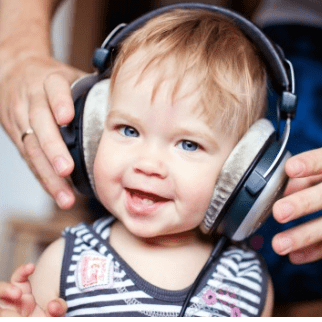
Every contribution to FHSR helps improve the lives of children with hearing loss.
Hearing Technology is changing rapidly from captioning to cochlear implants, loops to language software. Follow our blog to learn more and donate to the Loaner Hearing Aid program to help keep the technology available for all children with hearing loss.
We hope you will consider making a gift to support these children. Thank you!


